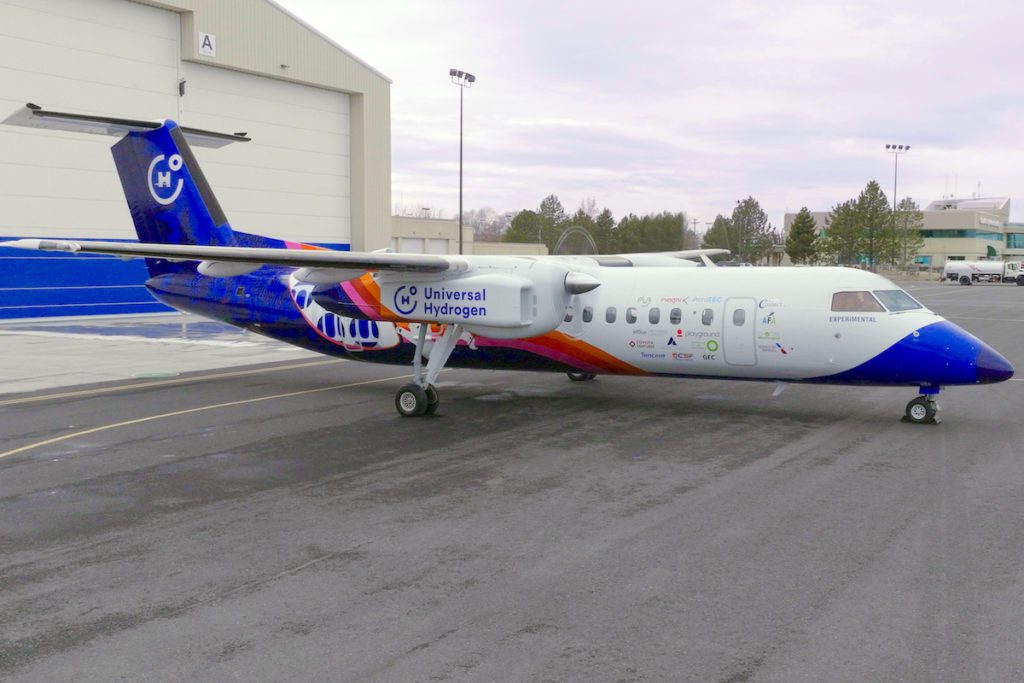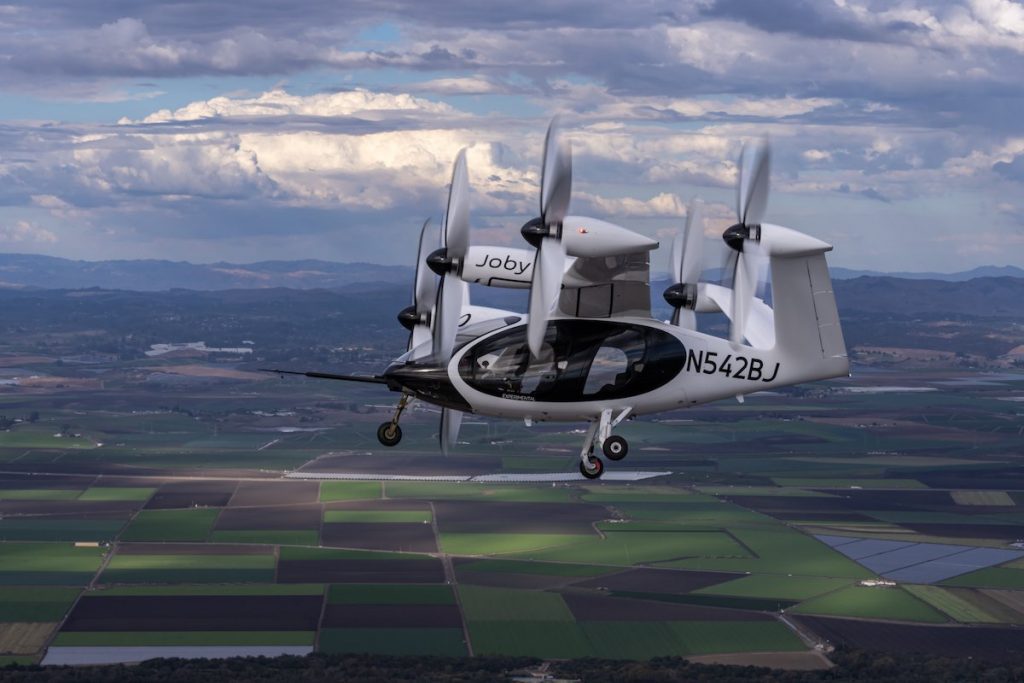Hydrogen-powered flight is one step closer to reality. Universal Hydrogen, which is developing a hydrogen fuel-cell powered commercial aircraft engine, has a green light from the U.S. Federal Aviation Administration to begin test flights.
While a little later than hoped — Universal Hydrogen had aimed for the first flight of its powertrain late last year — the news is a positive step forward in the aviation industry’s quest to achieve net-zero carbon emissions by 2050. Universal Hydrogen’s technology, which transmits power directly from the fuel cells to the engine without the need for a weighty battery, is being tested on a mid-sized turboprop, a De Havilland Dash 8-300, with the aim of introducing it commercially on the ATR 72 by 2025.
Tests flights will initially take place in Moses Lake, Wash.

JF Tessier, head of commercial for the Americas & East Asia at Universal Hydrogen, said last September that hydrogen, whether in used directly as fuel or in fuel-cell form, could be ideal to significantly reduce or eliminate emissions from smaller aircraft. He referred to both regional planes, like the ATR that Universal Hydrogen plans to introduce its technology on, up to ubiquitous mid-size airliners like the Airbus A320 and Boeing 737. For larger planes flying longer routes, sustainable aviation fuel is likely the best method to cut emissions.
Universal Hydrogen is just one of many companies — new and old — working to cut emissions from commercial aircraft. Others include Airbus, Archer Aviation, Eviation, and Heart Aerospace to name a few.
American Airlines and JetBlue Ventures are both investors in Universal Hydrogen.
